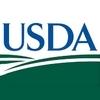Explore all the information on
Phytogenics in poultry nutrition
Phytogenics, also known as phytobiotics, are natural bioactive compounds of botanical origin that are used as alternatives to antibiotic growth promoters (AGPs) and are added to feed to enhance animal performance. Although phytogenics encompass a wide variety of substances of biological origin, formulation, chemical characterization, and purity, they can be classified into four groups: (1) herbs (products obtained from flowering, woody, and nonperennial plants); (2) botanicals (whole or processed parts of a plant, such as roots, leaves, tree bark, and spices); (3) essential oils (hydro-distilled extracts of volatile plant compounds); and (4) oleoresins (anhydrous solvent-based extracts). These plant-derived products do not contain residues, are natural, and are less toxic than synthetic antibiotics or inorganic chemicals. Many are generally recognized as safe (GRAS) by the U.S. Food and Drug Administration (FDA) and can be used as feed additives in animal nutrition.
INTRODUCTION Practical applications of agricultural wastes in poultry nutrition play an important role in replacing expensive ingredients and/or additives in their diet particularly after COVID-19 outbreaks in which an expected shortage of feed resources for animal nutrition may have occurred (1–3). Poultry are a valuable source of animal protein of high quality, and nutrition of poultry plays an essential role in controlling the balance of pro-oxidants and antioxidants and...
Comments : 0
Recommendations: 0
Hans Mann, Senior Poultry Specialist & Nutritionist at Grupo Cresta/Granja Azul from Guatemala, speaks about his experience using Phytobiotics Sangrovit in poultry farms ...
Comments : 0
Recommendations: 0
Enteric diseases can severely affect health and welfare in broilers but can be effectively treated by antibiotics. However, complying with current consumer trends requires the adoption of other strategies away from these chemicals. One of the alternatives is essential oils (EO’s); plant-derived compounds that are used in poultry nutrition due to their antimicrobial, antioxidant and immunemodulating effects (Brenes & Roura, 2010). Little is known about using EO’s during...
Comments : 0
Recommendations: 0
Waraporn Kraitavin, Regional Technical Manager at Phytobiotics, talks about the problem of heat stress in Asia and the positive effects of using phytogenic feed additives.
...
Comments : 0
Recommendations: 0


Lighting as a Strategic Tool for Optimizing Poultry House Performance
Suggested link
1 | INTRODUCTION Due to the impact of climatic changes and other global events such as conflict, the Covid‐19 pandemic, recession, and supply chain issues, conventional feed ingredient prices are continually increasing. The effect of these constraints is felt largely in developing countries that are coming under huge pressure to source raw materials such as corn and soybean meal (Abro et al., 2020). The search for alternative feed ingredients to sustain the livestock...
Comments : 0
Recommendations: 1
The increasing prices of major feed ingredients have prompted animal nutritionists to use inexpensive raw materials in their diet formulations to lower feed cost. However, due to their relatively lower digestibility, diets formulated with these raw materials often lead to poor gut health status and animal performance. For instance, poor protein digestibility results in the formation of toxic metabolites that can impair gut health and subsequently confer negative effects on broiler...
Comments : 0
Recommendations: 0
1. Introduction In recent years, the poultry sector has been developing rapidly worldwide to meet the growing consumer demand for poultry meat and eggs. Chicken meat is low in saturated fat and rich in protein, vitamins and minerals [1]. Similarly, a hen’s egg is the most affordable source of animal protein and constitutes a complete and highly nutritious food with significant health benefits for consumers [2]. It is estimated that animal-based food demand will grow by...
Comments : 0
Recommendations: 0
VIV MEA is the leading animal husbandry show in the Middle East. In a relatively short period of time it has proven to be a successful event, being able to gather local as well as international industry leaders and professionals. The next edition of VIV MEA will be organized from 20-22 November 2023 with...
Comments : 0
Recommendations: 1


FIGAP 2026: The Scientific And Technological Exhibition Of The Livestock Industry
Suggested link
Watery and sticky droppings in layers have been a problem in the egg industry for years. Wet droppings or diarrhea in chickens are early indicators of intestinal distress and can give a producer crucial information about the general gut health of their flock. Poultry litter becomes wet when the rate of water addition exceeds the rate of removal. Poor quality ingredients, toxins, pathogens and nutrient imbalances can cause wet litter directly by altering normal digestive physiology or...
Comments : 1
Recommendations: 1
The intersection of ancient wisdom and modern science is propelling a substantial leap towards profitability and sustainability in poultry production. Ayurveda, the time-honored system of holistic health, has paved the way for evidence-based approaches that align harmoniously with our environment. It places a strong emphasis on disease prevention and overall well-being, offering a balanced approach to livestock care that synergizes conventional and natural medicine. Ayurveda's wisdom...
Comments : 0
Recommendations: 1
Introduction The need for the animal sector to create ever-more-sophisticated strategies for producing animal protein in increasingly environmentally and economically responsible ways is growing. In addition to setting up ethical and environmentally friendly structures for subsequent generations, this is done to ensure that food is safe for consumption today [1, 2]. The incorporation of feed additives to accomplish these objectives has grown increasingly crucial as regulations...
Comments : 0
Recommendations: 1
The significance of gut health in poultry production cannot be understated, since it has a direct impact on bird performance, welfare, and overall production efficiency. A healthy gastrointestinal (GI) tract is necessary for optimized digestion, absorption, and utilization of nutrients that has impact on overall performance of birds. Overall, good gut health is essential for healthy poultry production. Producers work hard to improve gut health through balanced nutrition, management methods,...
Comments : 0
Recommendations: 0
.jpg&w=3840&q=75)

MetAMINO® Atlas: Essential Insights for Animal Nutrition Professionals
Suggested link
...
Comments : 3
Recommendations: 0
CHOLINE AS A NUTRIENT: BASIC FUNCTIONS Choline is an essential nutrient in most livestock species. It plays a crucial role in neurotransmitter synthesis (acetylcholine), cell membrane signaling (phospholipids), myelin synthesis and lipid transport (lipoproteins). Choline is a precursor of phosphatidylcholine, a phospholipid that besides being part of the composition of cell membranes, is involved in the generation and composition of bile secretions; therefore,...
Comments : 0
Recommendations: 2


Will New Version of GMP Boost the Veterinary Drugs Industry?
Suggested link
1. Introduction Phytogenic feed additives “phytobiotic” are assuming a position of prime importance in the poultry industry [1–3] and could be used in feed or water [4]. Among the promising phytogenic immune-stimulants, Nigella sativa (N. sativa) is a miracle medicinal herb having a long history with a rich religious background [5, 6]. N. sativa seeds are used for the treatment of some disorders and illnesses including fever, common cold, headache, asthma,...
Comments : 0
Recommendations: 0
Following the success of the Research Topic “Alternatives to Antimicrobial Growth Promoters and Their Impact in Gut Microbiota, Health, and Disease: Volume II,” we received an invitation from Frontiers to work on Volume II. This second volume includes 31 scientific articles, in the text of individual chapters in this Frontiers Research Topic. The editors are grateful to all 197 authors that contributed and participated in the achievement of Volume II. Homo sapiens reached...
Comments : 0
Recommendations: 0
Peter Surai (FeedFood, UK; Vitagene and Health Research Centre, UK, among others) presents on Engormix his talk about antioxidants and their use in poultry production....
Comments : 6
Recommendations: 8
Peter Surai (FeedFood, UK; Vitagene and Health Research Centre, UK, among others) explains the use of vitamin E and other additives when talking about meat quality, in this Engormix interview....
Comments : 1
Recommendations: 2
In a previous article, we discussed the importance of contaminated drinking water as a risk factor for colibacillosis and stressed the need to pay attention to its microbiological quality. In a recent trial made in our lab, we showed the in vitro effectiveness of DigestoCid© to...
Comments : 11
Recommendations: 0
PhytriCare® IM is a plant-based premix with a high flavonoid content. It has been developed to prevent a too high inflammatory state in sows, laying hens, and dairy cows....
Comments : 1
Recommendations: 0



































